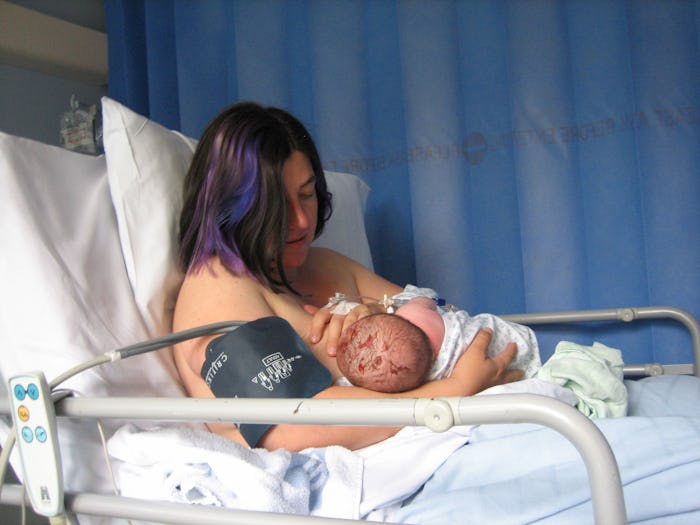After I had my daughter, I asked every mom I knew how breastfeeding affects your period. I wanted to know how long it took to get it, if their flow was any different after birth, and if other menstrual goodies, like cramps, seemed worse than before. Everybody had a different story to share, but one thing seemed to be consistent. The moms that chose to breastfeed waited longer for their periods to return than the moms who didn’t. Turns out that breastfeeding can affect your period, and your period can affect breastfeeding.
Breastfeeding is a personal choice and every mom knows what’s best for her baby and herself, so I’d be lying if I said the thought of a delayed menstrual cycle didn’t motivate me to breastfeed. La Leche League International reports that most women who exclusively breastfeed don’t experience a period until six months postpartum. Most menstrual cycles return once a baby starts replacing some of their meals with food rather than being nourished exclusively through breast milk. This delay is called lactational amenorrhea and is the result of excess prolactin, according to Web MD. In addition to producing breast milk, Parenting magazine points out that prolactin can also stop your eggs from maturing and stops the lining of your womb from nourishing those eggs. Since your menstrual cycle is when you shed that lining and the unfertilized egg, prolactin can cause the entire cycle to be delayed.
So not only can you avoid the tampon aisle, but breastfeeding sounds like a natural birth control, right? Well I wouldn’t toss out those condoms just yet. Known as the Lactational Amenorrhea Method, or LAM, breastfeeding can be used as a form of postpartum birth control, but according to Planned Parenthood, it’s only effective for the first six months after delivery. There are a few other stipulations as well if you plan on using LAM effectively.
1. You Can't Substitute Foods For Breast Milk
The Australian Breastfeeding Association notes that your baby must be exclusively breastfed. That means every time your baby eats, their meal is nothing but breast milk. No food, no formula, and no other type of milk.
2. You Shouldn’t Have Experienced A Period Yet
If your cycle has already returned, then that means you’re ovulating. Even if you’ve only had one period during those first six months, Kelly Mom says breastfeeding is not an effective birth control for you.
3. You Must Breastfeed Frequently
The Association of Reproductive Health Professionals recommends breastfeeding every four hours during the day and every six at night. In order for prolactin to suppress ovulation, it has to be producing milk. By feeding your baby frequently, your supply stays up and prolactin continues to be present.
Planned Parenthood also states that, if followed correctly, less than one out of a hundred women who exclusively breastfeed will become pregnant.
Once your flow returns, you may notice a change in breastfeeding, too. Your period will usually make its presence known once your child is nursing less frequently and enjoying foods, but you can continue to breastfeed while on your period. La Leche League notes that some babies may become fussy or irritated while breastfeeding once your cycle returns, as there may be a small drop in your supply. But as you continue to breastfeed, your supply will regulate itself and produce enough for your baby. Remember, once your period is back, using breastfeeding as birth control is no longer effective. Continue to breastfeed as long as you’re comfortable, but make sure to talk to your doctor about your birth control options.
